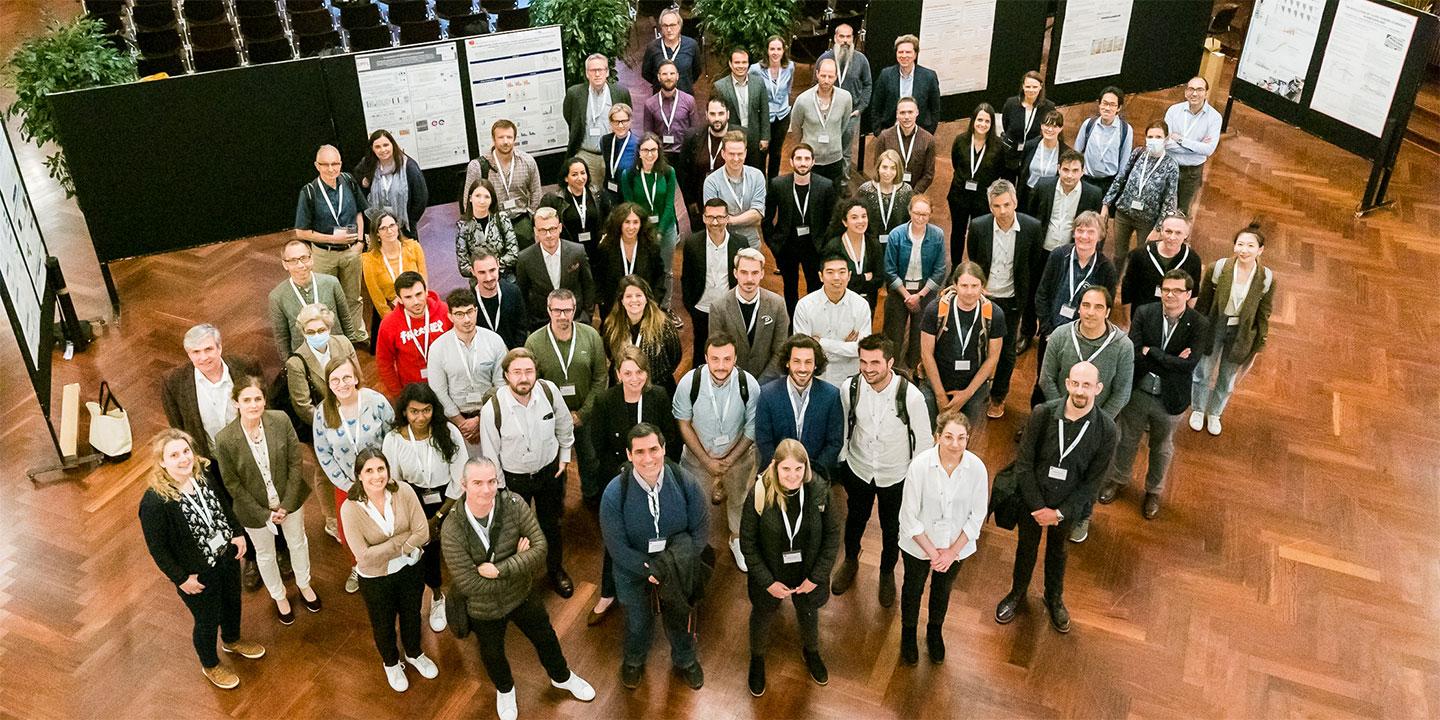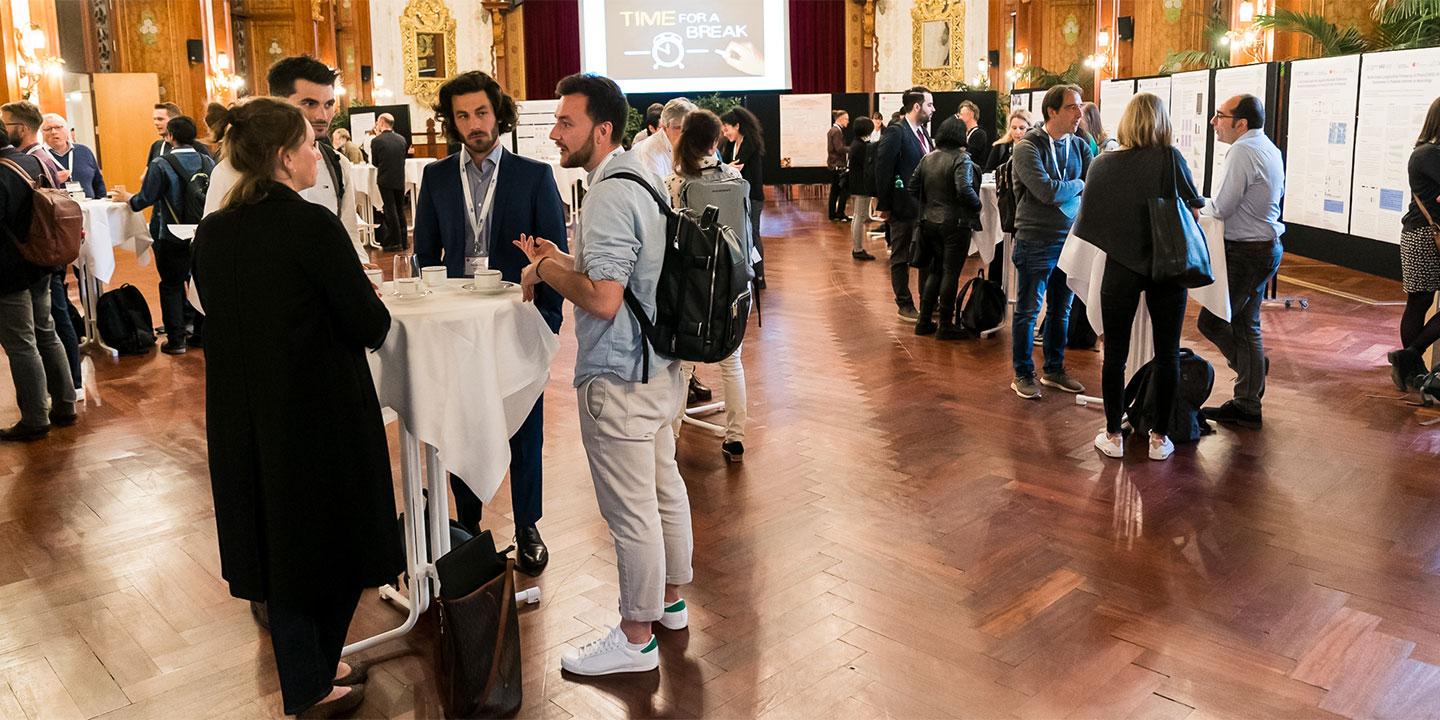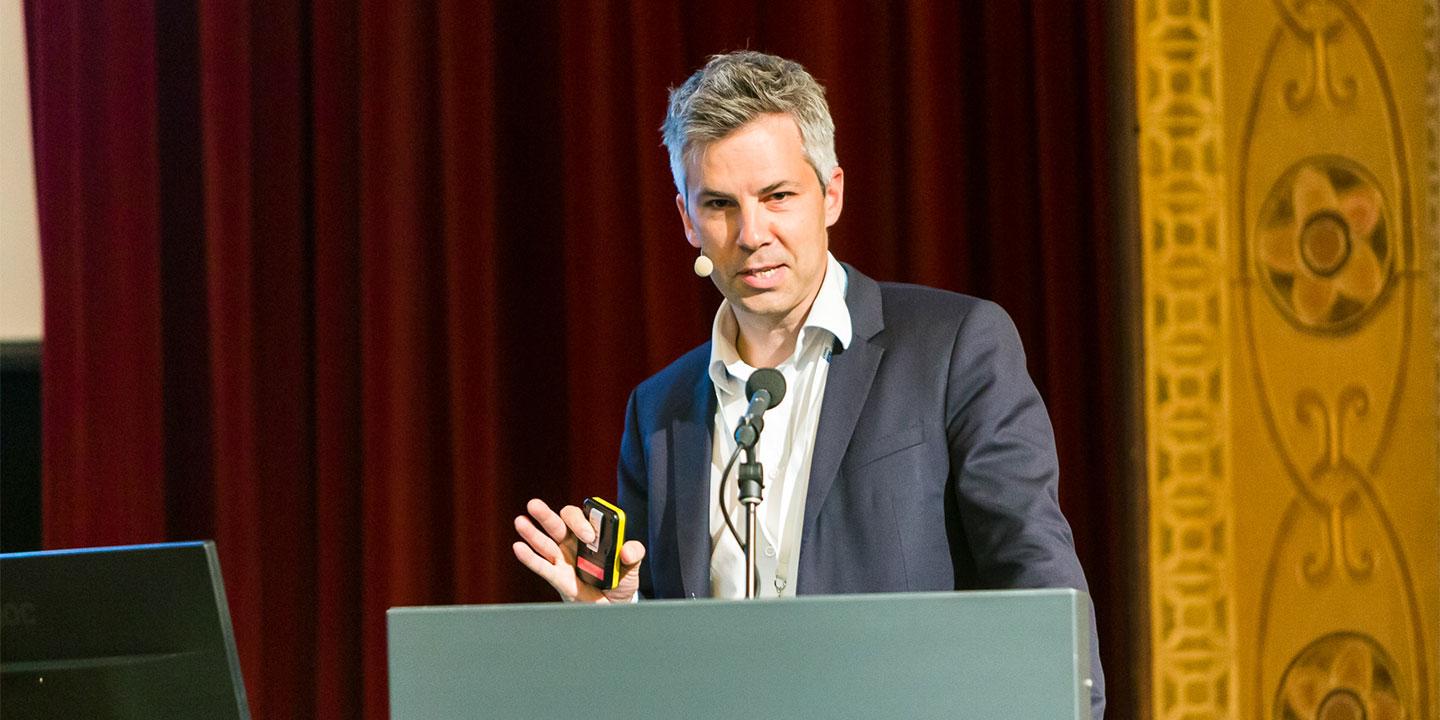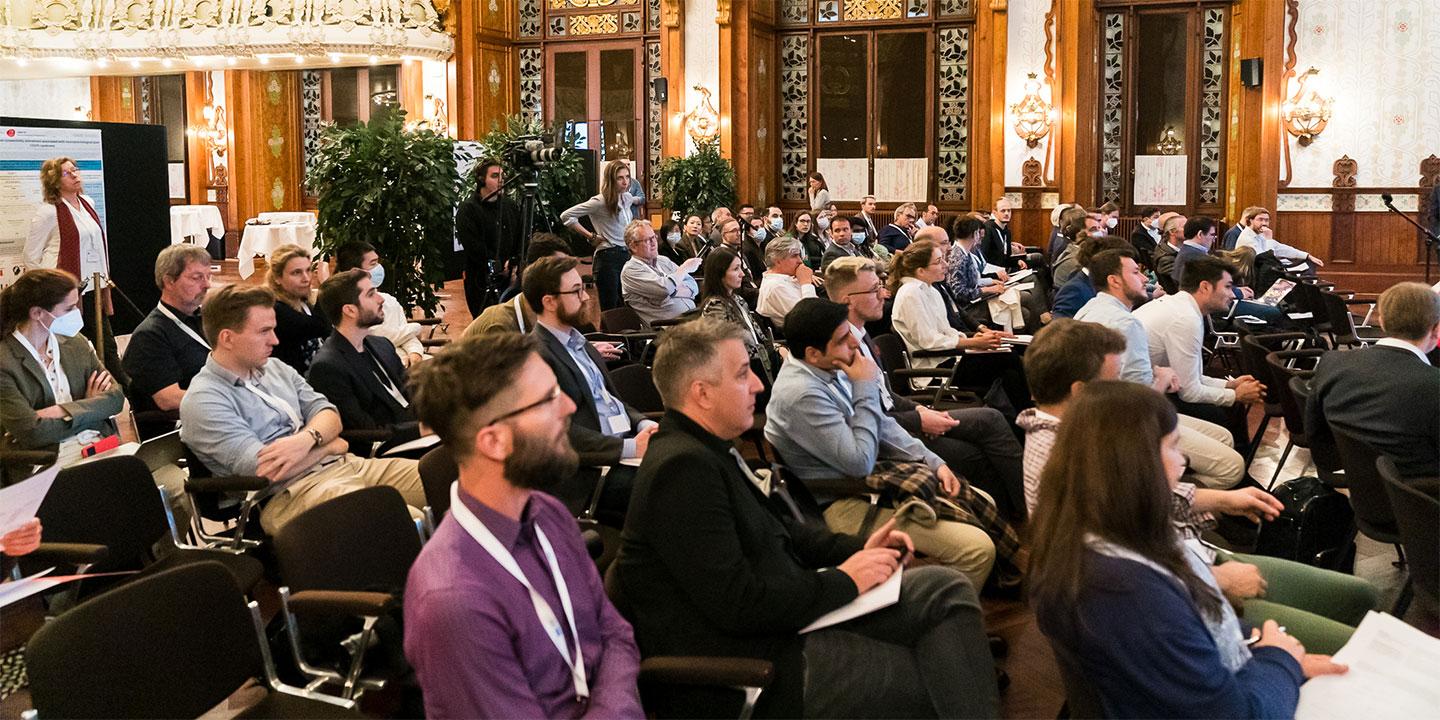Positive atmosphere at 2nd NRP 78 Programme Conference

In early May 2022, around 100 researchers met in person in Interlaken, most of them for the first time. As expected, they had a lot to talk about.
"Great conference, interesting discussions and excellent science!" was the enthusiastic feedback from some participants. The NRP 78 Programme Conference provided researchers with ample opportunities for scientific discussions and allowed especially younger participants to make new contacts.

During short presentations, more than 30 research groups from the special call on coronaviruses and NRP 78 presented their interim results. A poster session provided further opportunities for in-depth scientific discourse.

The first of three keynote presentations was given by Elsa Lorthe from Geneva University Hospitals, whose research team is studying the role of children in the context of Covid-19. She expects that children will show increased susceptibility to new variants. Their importance should not be underestimated in future, as schools present favourable conditions for high transmission rates.
An analysis by Annelies Wilder-Smith, London School of Hygiene, of potential WHO scenarios for the future of the pandemic showed that forecasting is very difficult. What is clear is that the pandemic is not yet over and that the virus will continue to evolve, but the new characteristics are still largely unknown. It is also clear that a high vaccination rate and regular boosters are crucial.
Tanja Stadler, professor at ETH Zurich and former president of the Swiss National Covid-19 Science Task Force, reviewed the pandemic in Switzerland and highlighted the challenges that interactions between scientists and decision-makers in Switzerland can involve.

The panel discussion on the second day featured Tanja Stadler from ETH Zurich, Isabella Eckerle from Geneva University Hospitals, Christian Kahlert from St. Gallen Cantonal Hospital and Robert Rieben from the University of Bern; the moderator was NRP 78 Steering Committee member Annelies Wilder-Smith.

The discussion confirmed experiences from various fields but also gave rise to new insights regarding, for example, the insecurity whether future variants will involve milder or more severe courses, aspects of long Covid relating to the cardiovascular system and the burden on healthcare workers in the longer term. The panelists agreed that the pandemic is not over, research is only just beginning in areas such as long Covid or predicting the further development of SARS-CoV-2 and Covid-19. Overall, there was a consensus that Switzerland risked remaining underprepared for a possible next wave in autumn or even for a future pandemic. Public health and research funding structures would need to be established now and closely coordinated to improve preparedness and future crisis management.
Some of the participants got to see the Eiger, Mönch and Jungfrau for the first time in real life, through the clouds from the Harder Kulm restaurant, where they all had dinner together.
